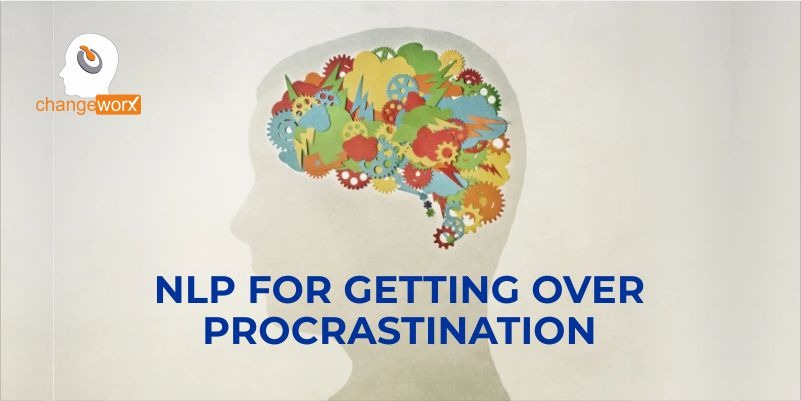
NLP For Getting Over Procrastination
NLP is based on the idea that the �language� of our brain shapes our thoughts, feelings, and behavior. The skills of Neuro-Linguistic Programming can help you to stop procrastinating and find a workable solution, whether your problem is not knowing where to start from or stopping too soon without really starting.
Every day we face many obstacles and challenges which tend to put us in a bad mood. This can lead to skipping workouts or not working hard enough at the office or not doing other important tasks, only making the problem worse.
Despite NLP being a rather young field, companies such as Google and Microsoft have been using it for quite some time. This is because NLP can be used in many fields such as medicine, law, education, and more.
What is the problem?
Most procrastinators know that they are lazy, but it’s often tough for them to figure out what they exactly want to do. Most people who procrastinate have little confidence in themselves and feel depressed because they feel like they are wasting their time by putting things off.
Some of the main reasons why you might not be motivated enough to get started include lack of self-confidence, low self-esteem, loneliness, or boredom.
What are the techniques used to stop procrastination?
There are various types of NLP techniques that are very good at stopping procrastination.
1. Every behavior that we have has a positive intention, identify it.
Acknowledge what possible intentions we have about procrastinating, and find ways to settle that higher intention.
2. The next thing is what kind of instruction do we give ourselves?
�Oh I have to do this�� or �I should be going ahead now��
Change that instruction. Change it to �It�s time to go now.� �I want to finish this!� Say it with a tone of conviction. The kind of tone where you have told people that you mean what you say.
3. Focus on the positive effects of what you will gain at the end of it.
Even a simple reward works. Generalize it so that it has a larger impact on your life. When you get up in the morning, don�t say �I don�t want to be late again!�
This way your mind is focused on the negative.
Start telling yourself what you want. So with the earlier statement, you would want to say �I want to be early so that I�m on top of things!�
Then you are thinking about the pleasurable outcome. Our minds cannot focus on the reverse of an idea so tell it what you want.
4. Use positive motivation.
Using punishment or penalty as a motivating factor can get you results at a particular point in time but, in the long run, it damages the body and mind. It�s unhealthy because the mind has to deal with fear, anger, stress and/or pain. Build in a positive benefit of completing the task.
5. Realise how will you feel when you achieve your goal.
Create colorful, brighter and bigger visuals of your accomplishment. Hear it clearly in your inner mind. Enjoy the rush of satisfaction, fulfillment, joy etc. and stick that picture in your mind. Rehearse it at least 7 times with intervals in between.
The use of a variety of techniques at the same time makes it easier for you to find a solution. However, remember that each person reacts differently to these techniques and you must experiment until you find the one that suits your needs best.
If you want to know more about NLP and need the perfect NLP coaching, Changeworx is the one. Here the certified NLP trainer Mr. Amit Pathak teaches with utmost ease and effectiveness and with continuous practice, you can have complete control over your mind and thoughts and ultimately motivate yourself to do the important jobs.
